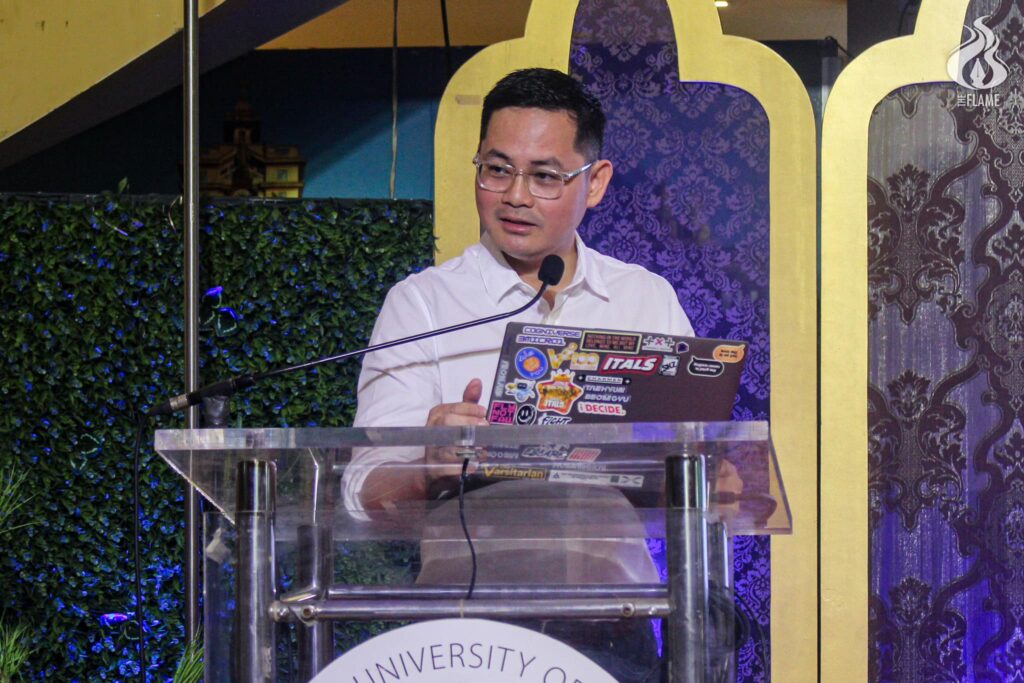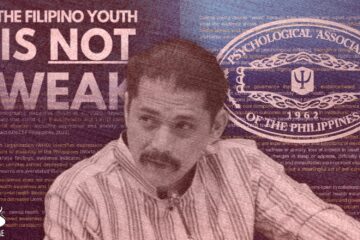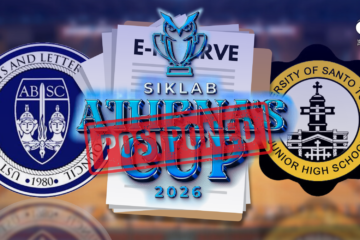
MEMBERS OF student publications should use their “circles of credibility” to espouse values and to raise voters’ standards during the midterm elections, a veteran journalist said.
In his lecture during the 26th Inkblots fellowship, Facts First host and UST Journalism Asst. Prof. Christian Esguerra said the time has come for ordinary Filipinos to retrieve the political narrative that has fallen into the hands of “exploitative” candidates whose primary concern is their electoral success and who do not listen to public needs.
“If they ever accepted help from these candidates, we should not blame them. We should blame the candidates who exploit their situation…If our politicians are well-bred, they would make themselves relevant in the delivery of basic services,” he said.
“We cannot allow our politics to stay the same, because it’s hard if we only complain, right? We, ourselves, can do something about it despite the fractured political and electoral systems that we have.”
Esguerra encouraged campus journalists to use their “circles of credibility” to promote values, not to endorse politicians.
“It’s how you penetrate people espousing other beliefs… Each person in this hall is credible to a specific circle. Let’s start with that, with those who believe in us,” he said.
Esguerra noted that while journalists could help shape political beliefs, their integrity should take precedence over their personal advocacies.
“Whether our journalism has integrity, that’s our contribution. We don’t need to raise the hands of people—that’s the problem when we cover. When you think the candidate is decent and you favor him or her, it’s harder to talk to that candidate than the ones you don’t approve of, right? That’s more challenging in terms of interviewing,” the journalism professor said.
“Our contribution in the upcoming election will rest on how well we empower our fellow Filipinos, the voters, to the kind of journalism that we have.”
Midterm elections are held halfway through a president’s six-year term. This year’s midterm polls will take place on May 12. Filipinos will elect 12 senators, a district representative and local government officials during the democratic exercise, which is viewed as a referendum for the sitting administration.
In a separate lecture, Rappler senior investigative journalist and UST Journalism alumna Lian Buan said paying attention to voters’ emotions and political beliefs could introduce fresher narratives that often matter more than covering predictable campaigns.
“You can just listen to their (candidates) speech and even predict their next sentence, [but] we can never predict what the voters feel at that moment. So once you go into a rally, just talk to them even if it’s off the record… You ask about their lives, you ask about their motivations, their hopes and their dreams,” she said.
According to Buan, voters who seem in favor of problematic politicians are not always selfish because it could be their only method of safety and survival.
“When people cheered on (former president Rodrigo) Duterte’s war on drugs, did it mean that Filipinos like him? Maybe not. Maybe their self-interest is that they want their daughters to walk the streets at night safely. So, that’s your story—hit their ignorance… What emotions drive them? Are they driven by pride, fear, hope? And then you can adopt that tone,” she added.
Carrying the theme “Campus Press as a Catalyst for Truth in the 2025 Elections,” the 26th Inkblots campus journalism fellowship was held from Jan. 11 to 12 at the Buenaventura Garcia Paredes, O.P. building.



